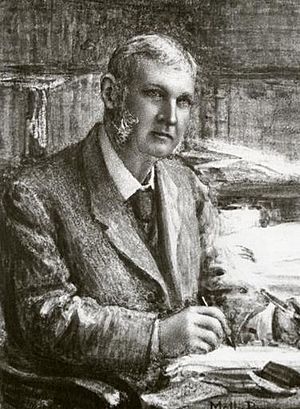William Henry Power facts for kids
Sir William Henry Power (born December 15, 1842 – died July 28, 1916) was an important British doctor. He spent his career working to improve public health and safety in England.
Contents
About Sir William Henry Power
Early Life and Public Health Work
William Henry Power was born in London, England. He became a doctor and dedicated his work to public health. This means he focused on keeping whole communities healthy, not just individual patients.
He worked for the Local Government Board. This was a government group that helped make sure towns and cities were clean and healthy. Sir William's job was to be an Assistant Medical Officer and a Medical Inspector. He checked on things like sanitation (cleanliness and waste disposal) to prevent diseases from spreading. His uncle, John Arthur Power, was also a smart person, known for studying insects (an entomologist) and teaching medicine.
Becoming Chief Medical Officer
In January 1900, Sir William Henry Power was given a very important job: he became the Chief Medical Officer for England. Think of this as being the top doctor for the entire country. In this role, he advised the government on health matters and helped create rules to keep everyone safe and well. He held this important position until 1908.
Awards and Recognition
Sir William was recognized for his hard work and contributions to medicine and public health.
- In 1898, he received the very first Edward Jenner Medal from the Epidemiological Society of London. This award honored his work in understanding and controlling diseases.
- He was chosen to be a Fellow of the Royal Society in 1895. Being a Fellow of the Royal Society is a big honor for scientists in the United Kingdom.
- The Royal Society also gave him their Buchanan Medal in 1907 for his achievements in public health.
- In 1902, he won the Bisset Hawkins Medal from the Royal College of Physicians, another respected medical organization.
Knighthood and Later Life
Because of his important work, Sir William was honored by the King. He was made a Companion of the Order of the Bath (CB) in 1902. Later, in 1908, he was knighted as a Knight Commander (KCB) of the same order. This is why he is known as "Sir" William Henry Power.
Sir William Henry Power passed away in 1916 at his home in East Molesey, Surrey. His work helped lay the foundation for better public health practices in England.
 | Calvin Brent |
 | Walter T. Bailey |
 | Martha Cassell Thompson |
 | Alberta Jeannette Cassell |


